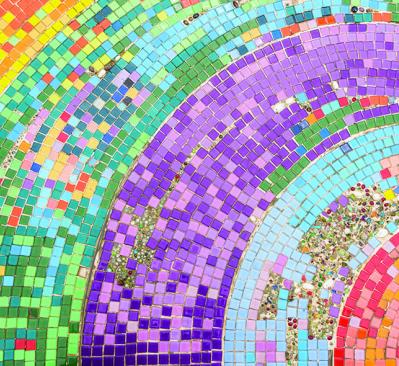
Although the U.S. has made exciting progress in recent years, from the passage of marriage equality to shifting culturally-held definitions of sex and gender, people who identify as Lesbian, Gay, Bisexual, Transgender, or Queer* (LGBTQ) continue to face widespread violence, harassment, and discrimination. While research is limited, the research that is available indicates that members of LGBTQ communities experience domestic and sexual violence at rates that are equal to or higher than non-LGBTQ people, particularly when they hold additional marginalized identities, such as being a woman of color or an undocumented immigrant.
And while they experience high rates of violence, LGBTQ survivors also often face significant barriers to safety and accessing services, such as historical over-incarceration and harassment by police, unintended outing, discrimination by service providers, and a lack of culturally responsive services that can result in revictimization. Additional layers of oppression often add to these barriers – the 2015 U.S. Transgender Survey (USTS) found that “transgender people of color who completed the survey experienced deeper and broader forms of discrimination than white USTS respondents,” and although they experienced higher rates of interpersonal violence, Black respondents reported less comfort reaching out to police, medical professionals, and shelters for help. Additionally, the lack of LGBTQ-inclusive violence prevention efforts and healthy relationship programming in most communities results in low levels of awareness of the prevalence and impact of domestic and sexual violence in LGBTQ communities. This special collection is intended to help domestic violence organizations address these gaps in services for LGBTQ survivors.
The information in this special collection offers an overview of research and resources that are currently available on preventing and responding to domestic violence within LGBTQ communities. Resources provided in this special collection are especially relevant to organizations and individuals who want to increase their capacity to provide culturally responsive intervention services to the LGBTQ survivors of domestic violence and to those who want to work with LGBTQ communities on prevention strategies.
This special collection draws from the work of many leaders around the United States who focus specifically on the issue of domestic violence within LGBTQ communities. We want to specifically highlight the work on a national level that the National Coalition of Anti-Violence Programs (NCAVP), The Northwest Network, the National LGBTQ Institute on IPV, The Network/La Red, and FORGE have done in partnership with these communities. Additionally, a list of organizations working around the issue of domestic violence in LGBTQ communities is provided at the end of this special collection.
Originally developed by the Minnesota Center Against Violence and Abuse, this collection was updated in 2019 by the National LGBTQ Institute on IPV in partnership with the National Resource Center on Domestic Violence. For more extensive information specific to transgender and non-binary survivors, see our Serving Trans and Non-Binary Survivors of Domestic and Sexual Violence special collection. For access to additional academic and conceptual articles on LGBTQ IPV, please visit the LGBTQ Institute’s online Zotero library.
PLEASE NOTE: With any personal identity the language chosen by the individual to describe their identity is of the utmost importance. Language that one individual uses to describe their sexual or gender identity can be considered offensive to the next. Definitions for these identities are not fixed and are always changing in meaning, both in society and by individuals.









